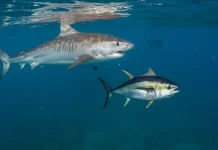Pacific leaders are not surprised by the latest Intergovernmental Panel on Climate Change (IPCC) report that says current action and plans are insufficient to keep warming below 1.5 degrees.
The report said more than a century of burning fossil fuels and unsustainable land use has had led to global warming of 1.5 degrees above pre-industrial levels.
Vanuatu’s Minister for Climate Change Ralph Regenvanu said the report makes “very clear” the planet is out of time to make climate transformations.
“The IPCC report is what we expected because the world is not doing what it should be doing,” Regenvanu said.
“So there was nothing surprising in that report, it is just more warning and showing that we really need to take drastic action immediately.”
Tuvalu’s Minister for Climate Change Seve Paeniu said the report is “confirmation” for what Pacific nations and countries have been calling for.
“This is the reality we are facing,” Paeniu said.
“Our countries are constantly being devastated by a raft of natural disasters and they are all climate induced.”
Both countries have set a goal of using 100 percent renewable energy by 2030.
Paeniu said Tuvalu – a low lying nation – was on the frontline of climate change.
He said the true cost of adaptation would involve reclaiming and raising land.
“We are talking US$3 billion or US$4 billion in the cost for that, and that is the true cost of permanent adaptation from the effect of sea level rise and climate change,” he said.
Tonga has the goal of using 70 percent renewable energy by 2025.
The country’s Prime Minister Hu’akavameiliku Siaosi Sovaleni said right now the nation uses about 20 percent renewable energy.
The IPCC report comes days after all three countries, as well as Fiji, Niue, the Solomon Islands, signed the Port Vila Call for a Just Transition to a Fossil Fuel Free Pacific last week.
The nations agreed to establish a Pacific Energy Commissioner for a “just transition” away from fossil fuels. The commissioner is to be formalised at the Pacific Islands Leaders Forum Summit meeting in October or November.
The countries are also calling for a fossil fuel non-proliferation treaty, which seeks the end of fossil fuel expansion. The treaty was already signed by Tuvalu and Vanuatu prior to the meeting.
They also agreed to join the Beyond Oil and Gas Alliance, an international coalition to facilitate oil and gas production phase-out.
Shiva Gounden, the Pacific Advisor for Greenpeace Australia/Pacific, said the report made it clear limiting warming to 1.5 degrees was still possible.
“But we need to fight like our lives depended on it just like the Pacific has done for decades,” Gounden said.
“The path currently is very narrow and it has been lit by the most vulnerable, most marginalised communities and the whole world needs to start walking this path of light.”
Gounden, who was in Vanuatu during the destructive twin cyclones Kevin and Judy last month, said there was a deep hurt within the Pacific communities because they contributed the least to the climate crisis but face the greatest consequences.
He said global warming could be limited if fossil fuels are brought down extremely rapidly.
But he conceeded that if the world keeps on the current trend the global temperature would surpass 1.5 degrees of warming.
“That will have extremely devastating impacts on the Pacific communities that can already see the impacts of climate change.”
Gounden said low lying atolls, like Tuvalu, already struggled to grow crops because of saline water and the land was seeping into the ocean damaging marine biology.
SOURCE: RNZ PACIFIC/PACNEWS














